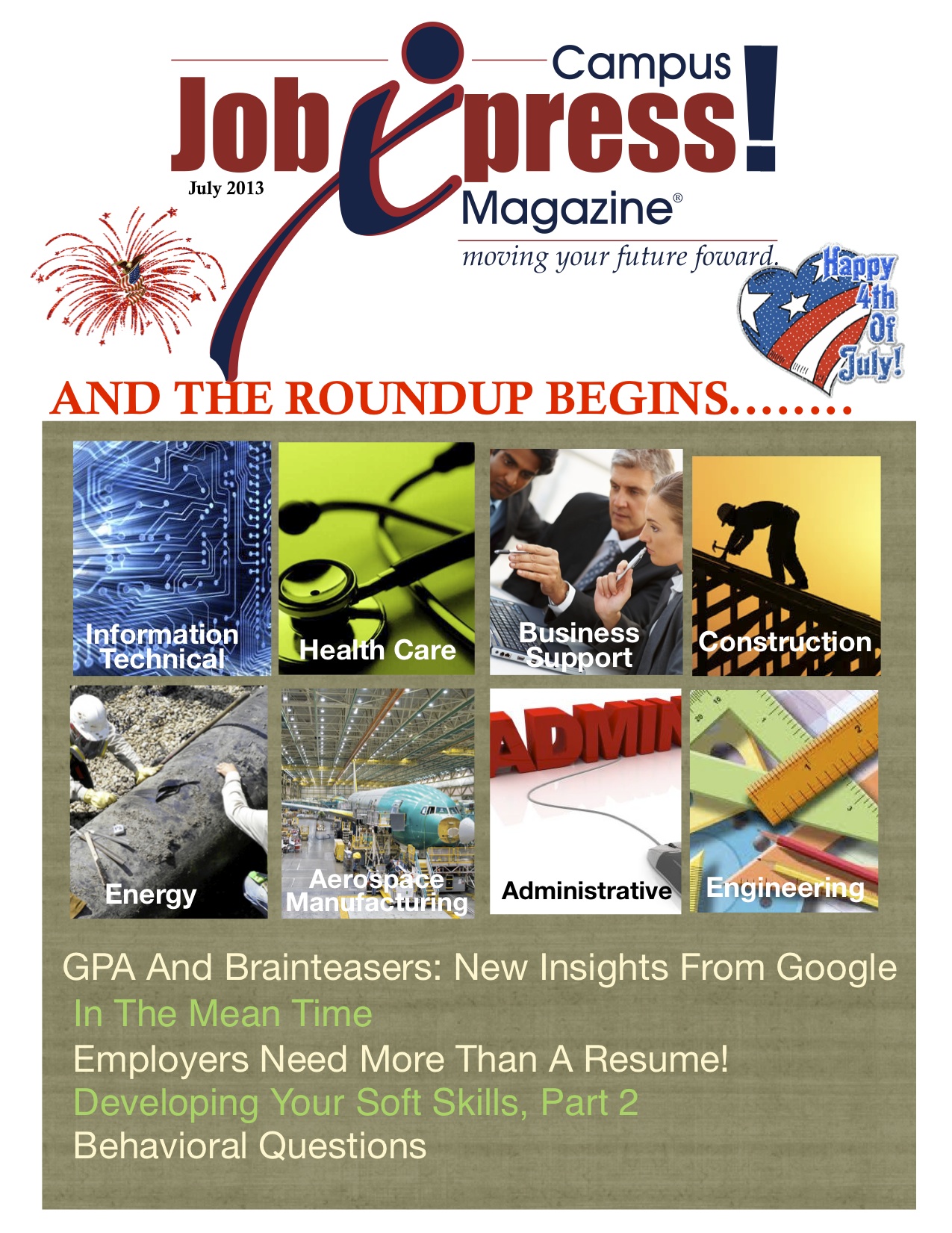
July 2013



Monster has listed some questions that everyone should ask themselves before accepting any new job. Do you agree or disagree with this list below. What would you add?
By: Chrissy Scivicque @ Monster College
Sample Page – Monster has listed some questions that everyone should ask themselves before accepting any new job. Do you agree or disagree with this list below. What would you add?
By: Chrissy Scivicque @ Monster College
ASSESSMENTS AND THE WORKPLACE
Over the past several months, we have had a chance to work with individuals taking assessments in getting ready to take a job.
What are assessments and how do they affect you getting a job?
Several companies, especially the larger companies, are now requiring their applicants to take a company assessment to determine whether the candidate will be a good match for the jobs they are offering. This is simply done because they want to see if you, as an applicant, will be the right person for their position and for their company as well.
Assessments can test anything from your skills and qualifications to your personality. Employers want to ensure that you will be able to perform on the job and it lets them know a lot about you, not just as an employee but as a person. Most assessments are conducted online and as we have discovered over the past several months, many people do not know how to take an assessment. It freaks them out or it makes them uneasy.
There is nothing to worry about. Many times, the company doesn’t look at the assessment as a pass or fail. It merely bases it on how they feel you should answer the questions. In our experience, applicants have proven to stay too neutral. Examples of the questions taken from About.com Job Searching are as follows:
What best describes your experiences providing feedback to others at work?
Select matching terms for: ____ is to water as eat is to ____.
It is best to analyze all the facts before making a decision.
In most assessments, having a strong opinion gives the best opportunity to pass.
Also, try not to worry about the assessment too much. In most instances, you will be given a second and maybe even a third chance to re-take it after a certain waiting period. Check out the company’s website to see if the company you are applying to uses assessments and instructions on how to take the assessment.
What is the difference between a career and a job?
Quoted from article by Trent on The Simple Dollar Web Site
• A job is something you do simply to earn money; a career is a series of connected employment opportunities.
• A job has minimal impact on your future work life; a career provides experience and learning to fuel your future.
• A job offers few networking opportunities; a career is loaded with opportunities.
“When you work at a job, you should do the minimum without annoying the boss. When you’re in a career, you should go the extra mile, doing tasks beyond your minimum job description.”
Not sure I agree with the last statement, you should always do your best.
| Career | Career Job | |
| What is it? | A career is the pursuit of a lifelong ambition or the general course of progression toward lifelong goals. | A job is an activity through which an individual can earn money. It is a regular activity in exchange of payment. |
| Requirements: | Usually requires special learning that includes individualized components that develop abilities beyond that which training is capable of. | Education or Special training may or may not be required. |
| Risk-Taking: | A career may not mean stability of work as it encourages one to take risks. The risks are often internal and, therefore, planned. | A job is “safe,” as stability of work and income is there. However, shifting priorities, especially in resource jobs, can abruptly change the demand and require re-location which is an unstable factor. Risks may be completely external. |
| Time: | Long term | Short term |
| Income: | Varies depending on value to society or to some other entity. Non-monetary benefits may be higher. Salary is more common. | Varies by demand. More likely to be wages. |
| Contribution to Society: | May have high value as social change/progress may be possible. | May actually have a negative impact when counterproductive social practices are continued in the name of protecting jobs. |
What are you pursuing?
Come to the Applicant Roundup on Friday, July 19th at the Hampton Inn and Suites-South at 2501 Marketplace, Waco, Texas.